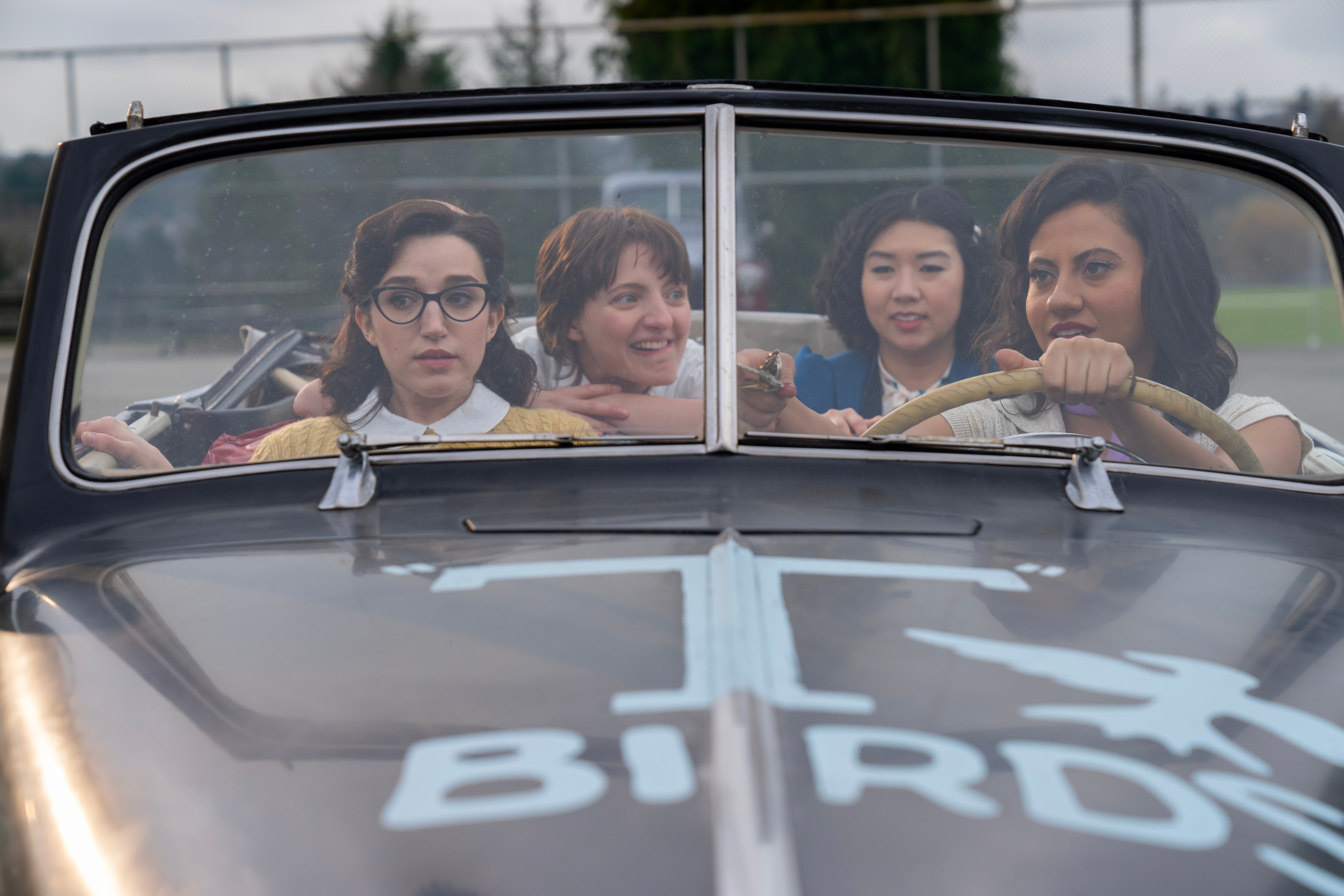Grease: Rise Of The Pink Ladies review: A blast from the past through a modern lens
Paramount Plus' 1950s-set series is filled with progressive Gen-Z values and songs that sound like Ariana Grande singles

Every period piece reflects the era that created it as much as the era when it takes place. Witness Baby and Johnny grooving to ’80s soft rock in the 1960s-set Dirty Dancing, Leonardo DiCaprio sporting a floppy Tiger Beat heartthrob ’do circa 1912 in Titanic, or Abbi Jacobson tossing out millennial slang in Prime Video’s A League of Their Own.
If you love a movie or TV show, it’s easy to forgive these anachronisms; in fact, they can sometimes be the entire point. When Randal Kleiser’s original Grease movie debuted, it was a sensation specifically because it looked back on the 1950s through a late-’70s lens, from the disco-inflected title song to Olivia Newton-John’s teased-to-heaven hairstyle.
Grease: Rise Of The Pink Ladies, which premieres April 6 on Paramount+, continues this proud anachronistic tradition; in 2023, that means progressive Gen-Z values and songs that sound like they could be Ariana Grande or Kesha singles (that’s likely because its lyricist-composer, Justin Tranter, has penned Top 40 hits for both these artists). Created by Annabel Oakes (Awkward, Minx), the series wears its liberal politics on its sleeve, treading the line between nostalgia for the aesthetics of postwar America and criticism of its regressive politics. The show takes a refreshingly light approach to thorny topics like racism and slut-shaming while largely doing them justice. And though its messaging can be didactic at times, Pink Ladies never feels like a chore. In fact, it’s a wall-to-wall blast.
Oakes’ show is a prequel to Grease set in 1954, four years before Danny Zuko and Sandy Olsson made out under the dock. Though the T-Birds are already strutting and preening down the halls of Rydell High, their girl-gang counterpart has yet to be born. Enter Jane Facciano (Marisa Davila), a not-quite-nerd, not-quite-popular girl whose family recently moved from New York City to ultra-suburban Rydell. (If the Facciano surname sounds familiar, note that she’s got a little sister named Frenchy.)
Jane starts the school year secretly dating dreamy quarterback Buddy (Jason Schmidt); but after he passively lets the whole school believe rumors about her (gasp!) putting out, Jane drops him—then finds herself sans clique. And in a town where every teen is defined by the jackets they wear—be they letter or leather—that’s bad news.
She’s our protagonist, but Pink Ladies is a true ensemble show. That primarily includes three other outcasts: Olivia (Cheyenne Isabel Wells), who’s smarting from an affair with her English teacher; Cynthia (Ari Notartomaso), a tomboy who dreams of joining up with the T-Birds; and Nancy (Tricia Fukuhara), an aspiring fashion designer and a proud weirdo.
When Jane decides to run against Buddy for class president, the foursome comes together to back her cause and solidify their friendship by donning those iconic jackets. Meanwhile, Olivia’s brother Richie (Johnathan Nieves), the hunky leader of the T-Birds, starts to get the hots for Jane. (The half-baked love triangle between these two and Buddy is the show’s weakest subplot; in this Grease, the romances aren’t nearly as compelling as the friendships.)
What’s notable about the Pink Ladies, aside from the fact that they’re all pretty darn charming, is that not one of them is the kind of girl you’d generally find at the center of a 1950s tale (read: white and/or straight). Jane is half Puerto Rican, Olivia is Mexican American, Cynthia is queer, and Nancy is Japanese American. Their biggest struggles derive from not only the misogyny they come up against as women, but the discrimination they face thanks to their cultural identities. (The rest of the student population also includes plenty of Black, AAPI, and Latinx folks.)
 Keep scrolling for more great stories.
Keep scrolling for more great stories.
